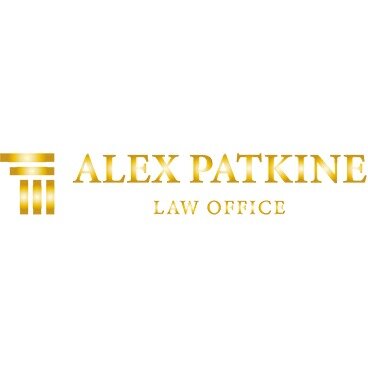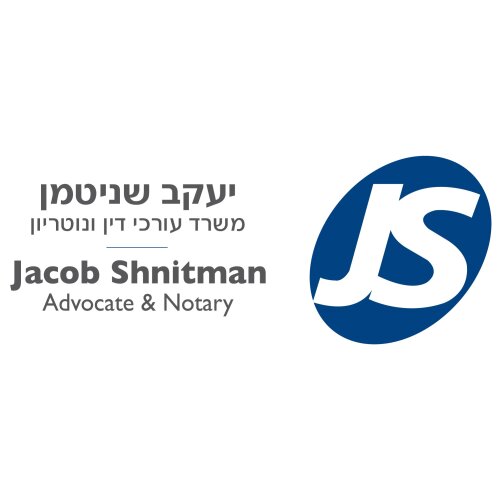Best Nonprofit & Charitable Organizations Lawyers in Haifa
Share your needs with us, get contacted by law firms.
Free. Takes 2 min.
List of the best lawyers in Haifa, Israel
About Nonprofit & Charitable Organizations Law in Haifa, Israel
Nonprofit and charitable organizations in Haifa, Israel, operate under a framework that encourages public benefit initiatives, community development, and social welfare projects. These organizations are critical in providing services and support across healthcare, education, culture, and other sectors. They typically operate as amutot (nonprofit organizations) or public benefit companies, both required to adhere to specific registration, operational, and reporting regulations. The legal environment in Israel supports a vibrant nonprofit sector but demands accountability and transparency to ensure these entities serve the public interest effectively.
Why You May Need a Lawyer
Engaging legal assistance is crucial in several situations involving nonprofit and charitable organizations in Haifa:
- Establishing a nonprofit organization: Ensuring proper registration and understanding the legal framework is essential.
- Compliance with local laws: Nonprofits must adhere to strict reporting and operational guidelines.
- Employment and volunteer agreements: Legal guidance helps draft contracts and understand labor laws.
- Tax exemptions and benefits: Professional advice can aid in securing and maintaining tax-exempt status.
- Intellectual property: Protecting the organization's trademarks and copyrights within legal bounds.
- Resolving conflicts or disputes: Legal support is vital for mediation or court proceedings.
- Dissolution or transformation: Lawyers assist in legally winding down operations or converting to a different entity type.
Local Laws Overview
The legal framework governing nonprofits in Haifa is primarily based on national regulations, subject to regional nuances. Key aspects include:
- Amutot Law (1980): Governs the formation and operation of nonprofit organizations, specifying requirements for registration, governance, and annual reporting.
- Public Benefit Companies: Allows for-profit entities to operate with a mission to promote public interests, under strict conditions.
- Taxation: Nonprofits typically benefit from exemptions, but must comply with regulations to maintain this status.
- Regulatory Authority: The Registrar of Amutot oversees registration and compliance, ensuring organizations adhere to stated objectives.
- Employment Law: Applicable labor laws must be observed in employment and volunteer engagements.
- Reporting Obligations: Transparency in financials and operations is mandatory, with annual submission of reports and financial statements.
Frequently Asked Questions
How do I register a nonprofit organization in Haifa?
Registration involves submitting a set of documents to the Registrar of Amutot, including the organization's objectives, detailed by-laws, and information about the founders.
What are the ongoing compliance requirements for nonprofits?
Nonprofits must annually submit financial statements, reports on activities, and updates on any changes in settings or operations to the Registrar of Amutot.
Can a nonprofit generate revenue in Haifa?
Yes, nonprofits can engage in revenue-generating activities as long as the income supports the organization's primary objectives and complies with the regulations governing tax exemptions.
Is my nonprofit eligible for grants and donations?
Eligibility depends on the compliance status, stated objectives, and the alignment of the organization's activities with donor priorities or grant terms.
What are the tax benefits for nonprofit organizations?
Registered nonprofits often qualify for various tax exemptions, such as VAT and income tax reductions, benefiting from special provisions under Israeli tax laws.
How can I ensure my organization remains compliant?
Regular audits, adherence to annual reporting requirements, and robust governance practices help maintain compliance.
What legal protections are available for volunteers?
Volunteer agreements should be drafted according to labor regulations, ensuring volunteers' rights and responsibilities are clearly outlined and protected.
How do I manage legal disputes within the organization?
Mediation or arbitration within the governance framework is encouraged. Legal counsel can facilitate negotiations or represent the organization in court if required.
Can I modify the objectives of my nonprofit after registration?
While objectives can be amended, any changes must be formally documented and approved by the Registrar of Amutot.
What happens if my nonprofit organization dissolves?
Upon dissolution, any remaining assets must be allocated per the organization's bylaws or transferred to another nonprofit, under the supervision of the Registrar.
Additional Resources
Consider seeking additional information and guidance from these resources:
- Registrar of Amutot: Provides comprehensive resources and support for registration and compliance issues.
- Haifa Municipality: Offers local support, grants, and information specific to regional laws and opportunities.
- Volunteer Centers: Connects nonprofits with volunteers and provides legal framework guidance for engagements.
- Legal Clinics and NGOs: Some organizations specialize in offering legal assistance to nonprofits and could be valuable resources.
Next Steps
If you're seeking legal assistance for your nonprofit in Haifa, consider the following steps:
- Assess your needs: Determine the specific legal services you require.
- Research: Look for lawyers or firms with expertise in nonprofit law in Haifa.
- Consult: Set up initial consultations to discuss your needs and the lawyer's experience and services.
- Engage: Choose a legal advisor with a deep understanding of your organization's objectives and the legal context it operates within.
With the right legal support, your nonprofit can navigate complex legal landscapes and focus on its mission to make a difference.
Lawzana helps you find the best lawyers and law firms in Haifa through a curated and pre-screened list of qualified legal professionals. Our platform offers rankings and detailed profiles of attorneys and law firms, allowing you to compare based on practice areas, including Nonprofit & Charitable Organizations, experience, and client feedback.
Each profile includes a description of the firm's areas of practice, client reviews, team members and partners, year of establishment, spoken languages, office locations, contact information, social media presence, and any published articles or resources. Most firms on our platform speak English and are experienced in both local and international legal matters.
Get a quote from top-rated law firms in Haifa, Israel — quickly, securely, and without unnecessary hassle.
Disclaimer:
The information provided on this page is for general informational purposes only and does not constitute legal advice. While we strive to ensure the accuracy and relevance of the content, legal information may change over time, and interpretations of the law can vary. You should always consult with a qualified legal professional for advice specific to your situation.
We disclaim all liability for actions taken or not taken based on the content of this page. If you believe any information is incorrect or outdated, please contact us, and we will review and update it where appropriate.















